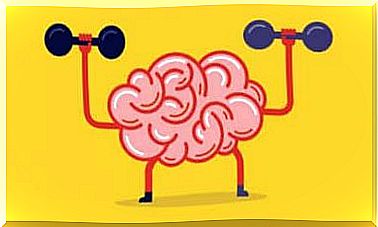You Better Not Believe Everything You Think

Do not believe everything you think. Suppose you arrive at work and first say good morning to everyone. All your co-workers say good morning back, except for one man, who doesn’t even turn to look at you.
All sorts of thoughts immediately go through your head. ‘What’s wrong with him? Did I do something and is he mad at me now? But then what? Maybe he found me annoying during the last meeting… But I didn’t say anything personal anyway, it was just a professional opinion. No, it certainly isn’t. Then what? Is he just rude?’
It’s so easy to get into a vicious circle where you’re constantly grinding over the same thoughts. You keep repeating it in your head and you can even make yourself sad, angry or nervous with these thoughts. Is there anything wrong with your colleague at all?
Maybe he wasn’t responding because he was focused on his work. Maybe he didn’t even hear you. Then why are all those thoughts running through your head? How much do our thoughts affect our mood? Keep reading to find out…
Does the situation itself upset you or the way you interpret the situation?
As a general rule, when we experience negative emotions, we attribute them to concrete situations or the behavior of others. We are convinced that we are angry because of things we have no control over. In other words, we think that our feelings are caused by external factors.

You get mad because your coworker didn’t say good morning. That’s something you have no control over. What if, instead of focusing on the reactions of others, you tried to regulate your own emotions? The only thing you do have control over is how you interpret things that are happening around you.
However, what exactly does this mean? Well, it means recognizing that you didn’t get angry because of something that was out of your control. Instead, it was your interpretation of the situation that made you angry. When your coworker didn’t say good morning back, you immediately thought he was doing this because he was mad at you or because he was just being rude.
Who wouldn’t be upset by these kinds of thoughts? However, if you looked at the situation objectively, you would see that you actually have no real reason to be upset about what happened.
What if you had other thoughts instead of negative thoughts? Suppose you thought: ‘He probably hasn’t even heard me’ or ‘He’s just very focused, it’s nothing personal’. Do you think you would still be upset?
Most likely not. In fact, it probably wouldn’t even bother you. This is a perfect example of how what you think can affect your mood and sense of well-being.
Is what you think a reflection of reality?
What you think can have a big impact on your mood, even if your thoughts are not realistic. However, most of us don’t even question whether what we’re thinking is right or not. We just believe in ourselves, and that’s that.
So, even if your co-worker has absolutely no problem with you, you think that they do and at some point this thought becomes a fact in your mind. You get angry as if you really have a reason to be angry.
Why does our mind work like this? People generally have the urge to know why things happen. If we don’t have enough information, we develop various biases and draw our own conclusions.
However, these conclusions do not have to be the most realistic. Moreover, they are often accompanied by negative emotions that would actually not be necessary at all if we were more based on reality.
No one teaches you that what you believe can be wrong. If you learned to question your inner dialogue every now and then, you could regulate your emotions much more effectively. Your thoughts could even have a positive influence on your mood. How? By replacing your negative ideas and inner dialogue with positive self-instruction!

This article is the first in a series of five on how to control the thoughts that go through your head. The truth is, it’s not that easy. However, with a little effort and dedication, you can make it happen.
The first step is to understand and internalize how your thoughts affect your mood. That way you will become aware of the importance of questioning yourself and changing thoughts that are not a reflection of reality. Do not believe everything you think. You will be a lot happier!
Images courtesy of Roberto Nickson .









